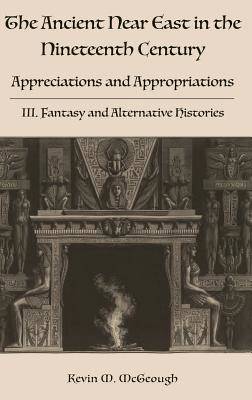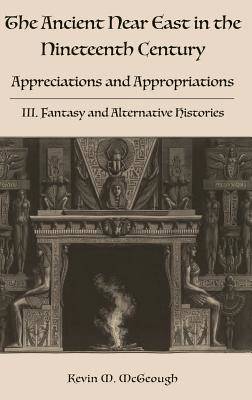
- Retrait gratuit dans votre magasin Club
- 7.000.000 titres dans notre catalogue
- Payer en toute sécurité
- Toujours un magasin près de chez vous
- Retrait gratuit dans votre magasin Club
- 7.000.0000 titres dans notre catalogue
- Payer en toute sécurité
- Toujours un magasin près de chez vous
The Ancient Near East in the Nineteenth Century
Appreciations and Appropriations. III. Fantasy and Alternative Histories
Kevin M McGeough
Livre relié | Anglais
128,95 €
+ 257 points
Format
Description
At the beginning of the nineteenth century, little was known of the ancient Near East except for what was preserved in the Bible and classical literature. By the end of the nineteenth century, an amazing transformation had occurred: the basic outline of ancient Near Eastern history was understood and the material culture of the region was recognizable to the general public. This three-volume study explores the various ways that non-specialists would have encountered ancient Egypt, Mesopotamia, and the Holy Land and how they derived and constructed meaning from those discoveries. McGeough challenges the simplistic view that the experience of the ancient Near East was solely a matter of 'othering' and shows how different people claimed the Near East as their own space and how connections were drawn between the ancient and contemporary worlds. Volume III argues that fiction and fantasy play an important role in establishing expectations about the past. Changing sensitivities towards realism in art meant that imaginary visions were charged with an archaeological aesthetic. Orientalist painting offered seemingly realistic glimpses of ancient life. Stage plays and opera used the ancient Near East for performances that explored contemporary issues. Mummy stories evolved from humorous time-travel tales into horror fiction rooted in fears of materialism, and adventure novels ruminated on the obligations and dangers of empire. Alongside these explicitly fictional modes of thinking about the past, the nineteenth century saw a rise in popularity of esoteric thinking. People offered alternative versions of ancient history, imagining that ancient religious practices continued into the present, through secret societies like the Freemasons and the Rosicrucians or in the new movements of Mormonism and Theosophy. Volume III ends by examining the interpretations of the Near East offered by Sigmund Freud and H.P. Lovecraft, showing how these two figures influenced later popular experiences of the ancient Near East.
Spécifications
Parties prenantes
- Auteur(s) :
- Editeur:
Contenu
- Nombre de pages :
- 452
- Langue:
- Anglais
Caractéristiques
- EAN:
- 9781909697676
- Date de parution :
- 28-05-15
- Format:
- Livre relié
- Format numérique:
- Genaaid
- Dimensions :
- 156 mm x 234 mm
- Poids :
- 807 g

Les avis
Nous publions uniquement les avis qui respectent les conditions requises. Consultez nos conditions pour les avis.






